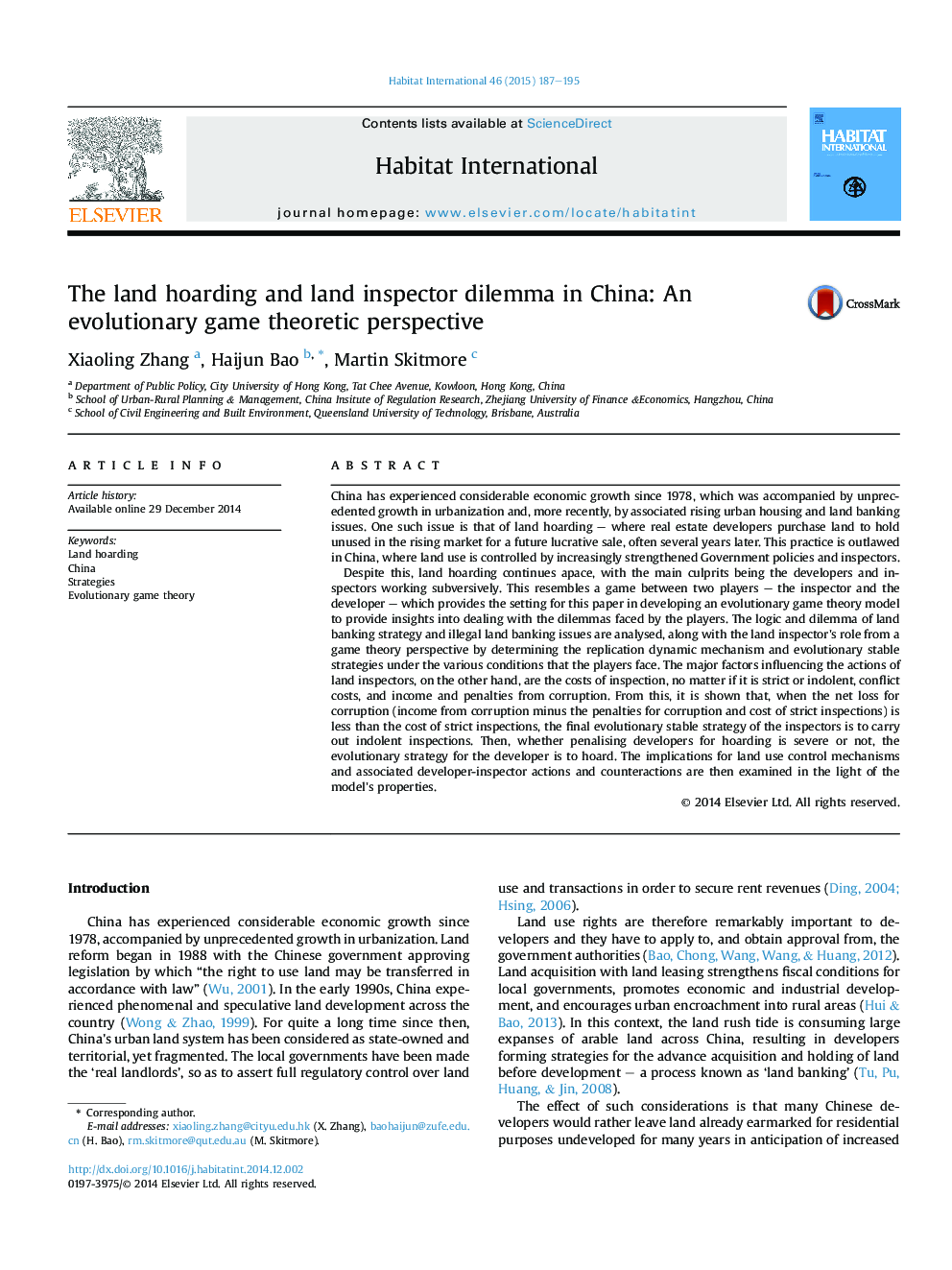| کد مقاله | کد نشریه | سال انتشار | مقاله انگلیسی | نسخه تمام متن |
|---|---|---|---|---|
| 1047935 | 1484497 | 2015 | 9 صفحه PDF | دانلود رایگان |
• This paper uses a game model to demonstrate the dilemma of land hoarding vs. inspection.
• It shows that the logic and strategies adopted by the inspector and developers are interactional.
• It examines the implications for land use control mechanism and developer-inspector interactions.
China has experienced considerable economic growth since 1978, which was accompanied by unprecedented growth in urbanization and, more recently, by associated rising urban housing and land banking issues. One such issue is that of land hoarding – where real estate developers purchase land to hold unused in the rising market for a future lucrative sale, often several years later. This practice is outlawed in China, where land use is controlled by increasingly strengthened Government policies and inspectors.Despite this, land hoarding continues apace, with the main culprits being the developers and inspectors working subversively. This resembles a game between two players – the inspector and the developer – which provides the setting for this paper in developing an evolutionary game theory model to provide insights into dealing with the dilemmas faced by the players. The logic and dilemma of land banking strategy and illegal land banking issues are analysed, along with the land inspector's role from a game theory perspective by determining the replication dynamic mechanism and evolutionary stable strategies under the various conditions that the players face. The major factors influencing the actions of land inspectors, on the other hand, are the costs of inspection, no matter if it is strict or indolent, conflict costs, and income and penalties from corruption. From this, it is shown that, when the net loss for corruption (income from corruption minus the penalties for corruption and cost of strict inspections) is less than the cost of strict inspections, the final evolutionary stable strategy of the inspectors is to carry out indolent inspections. Then, whether penalising developers for hoarding is severe or not, the evolutionary strategy for the developer is to hoard. The implications for land use control mechanisms and associated developer-inspector actions and counteractions are then examined in the light of the model's properties.
Journal: Habitat International - Volume 46, April 2015, Pages 187–195
